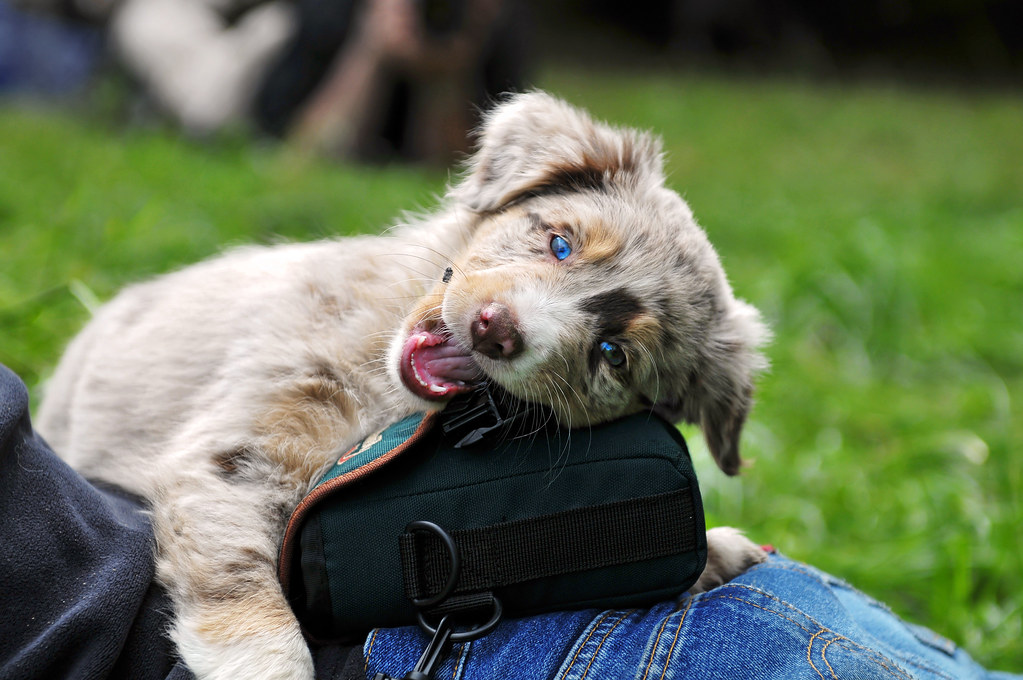|
|

Our dogs may be family, but that doesn’t mean they’re always the best roommates. And one of the most common complaints we humans have about our canine roomies is the chewing.
Why do they always go straight for the newest pair of shoes? The important document you needed for today’s meeting? The arm of the sofa?
There are many possible causes of destructive chewing. By identifying why your dog is engaging in the behavior, you’ll find it’s much easier to figure out how to stop it.
Puppyhood
Just like human toddlers like to put things in their mouths, puppies use their mouth to explore and understand the world around them. The good news is that, for many, it’s a stage that they will outgrow over time. So puppy-proof your home in the meantime, and focus on establishing your pack leadership so you can reign in chewing or any other unwanted behaviors over the long-term.
Separation anxiety
If the behavior occurs when you’re away from home, then it may be a symptom of separation anxiety. To stop chewing when left alone, you’ll need to address this underlying issue. Are you practicing “No Touch, No Talk, No Eye Contact” when entering and leaving the home? Do you leave the home with your dog in a rested state after a nice walk? Find more tips for addressing separation anxiety here.
Boredom
If your dog has excess energy, she has to direct it somewhere — and that may just be your favorite new pair of shoes. Assess the level of challenge you are providing for your dog. Are you providing regular walks? Are the walks long enough? What about other mental challenges? Are you playing with your dog enough?
Instinct
Even past puppyhood, dogs enjoy chewing. It’s a natural, normal behavior — as long as it isn’t excessive. But that doesn’t mean you have to grin and bear it. Instead, redirect the dog’s chewing instinct towards appropriate objects, such as chew toys. Correct your dog — calmly and immediately — when he is chewing on any other object you want him to avoid.
Medical issues
Some nutritional deficiencies can lead to pica, which is the instinct to eat non-food items. And also some dogs suffering from gastrointestinal issues may use chewing to trigger vomiting to feel better. Particularly if the behavior started suddenly, it’s worth ruling out medical causes before addressing it as a behavioral issue.
Dog chewing can be overcome with consistency. In addition to the tips above, another important technique is claiming the object, which means using your body language and calm-assertive energy to let the dog know that the object is yours. Try imagining an invisible fence that you’re putting up around the object and yourself.
If you’re struggling to find a solution for the destructive chewing behavior, consider getting an expert to help. You’re doing what’s best for you and your dog, since chewing the wrong object can cause lasting medical harm to your pup. Plus, hopefully, you’ll save your next pair of new shoes.
0 comments:
Post a Comment